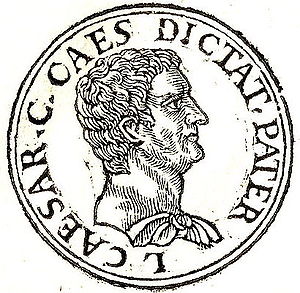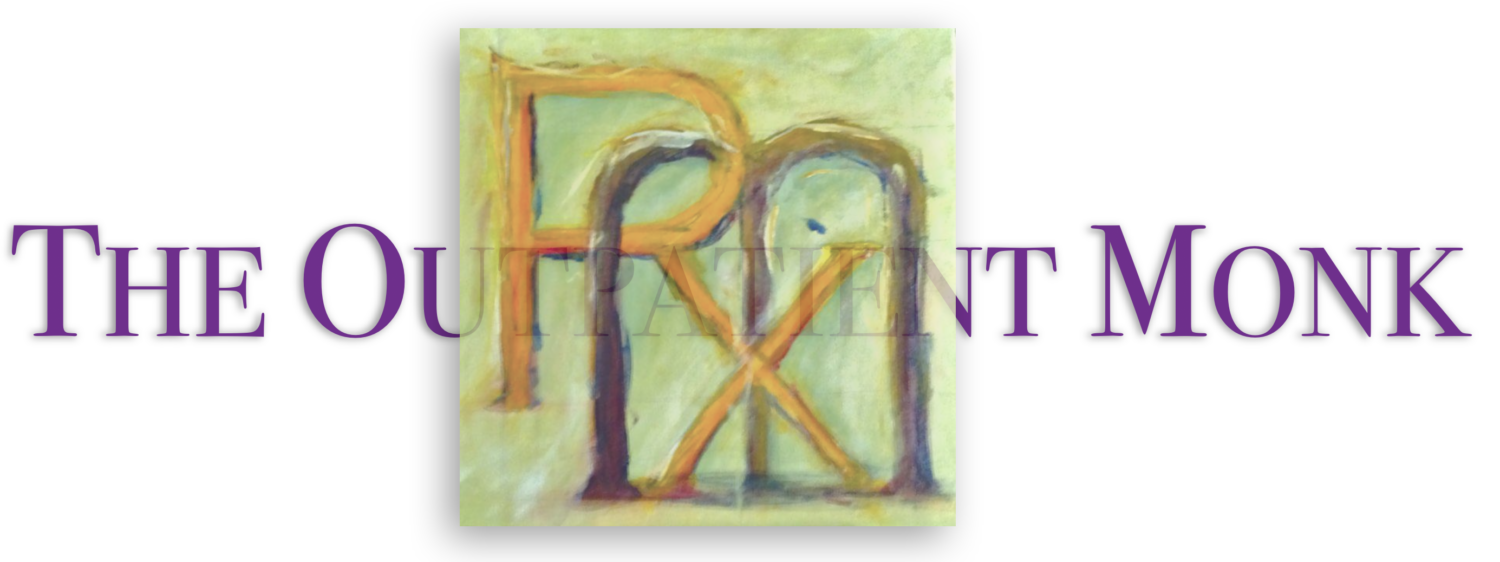 Here is a guest post in our series on the culture wars from a friend, one time fellow barista, and former student of mine, Fr. Matt Boulter. More about Matt can be found at his blog: Religiocity.
Here is a guest post in our series on the culture wars from a friend, one time fellow barista, and former student of mine, Fr. Matt Boulter. More about Matt can be found at his blog: Religiocity.
In about the year 6 AD in ancient Palestine, with winds of revolution blowing in the air, a Jewish militant called Judas of Galileerose up in defiance of the oppressive Roman government, at that time brutally plaguing the Jewish people. In his revolutionary zeal Judas does three things:

- Rids the Temple of Gentiles by force.
- Preaches for people to forsake Caesar in favor of hi view of the Kingdom of God.
- Calls Jews to refuse to pay some taxes to Caesar.
Shortly after his anti-Imperial mutiny, Judas was summarily attacked, captured, and executed. His revolutionary followers, thus, disbanded and went home. Fast-forward the story about a quarter century, when we encounter one Jesus of Nazareth who does some very similar, and yet entirely different things.
Jesus echoes Judas of Galilee by (1) crafting his entire teaching around the message of “the Kingdom of God,” and (2) cleansing the Temple, expelling the money changers and the animal sellers.
The stage is set for the dramatic encounter we read about in all three of the “synoptic” Gospels, in which Jesus is cross-examined on his political intentions.
“Jesus,” his audience seems to be thinking, “You’ve really got our attention with this revolution you’ve started. Your preaching of ‘the Kingdom of God’ and your cleansing of the Temple show us that you could actually “go the distance and,” quite possibly, bring Rome to its knees, at least here in God’s holy land of Israel.”
Just decades before, the Roman authorities had rubbed the Jews’ faces in the mud by imposing the “head tax,” which the Jews were required to pay, solely for the “privilege” of being a Roman “protectorate.” It was a kind of extortion.
“Jesus,” they ask, “You’ve cleansed the Temple, you’ve undermined Caesar’s authority by preaching an alternative kingdom. What do you say? Should we revolt again, by throwing this abominable tax back into his face? Maybe we can relive the glory days of the Maccabean revolution, and give Rome a run for its money!”
Jesus looks at them … and what does he do? In the face of a gaping false dichotomy — Roman Imperialism versus Jewish guerilla violence — he refuses to take sides.
The Zealots (can you say “Pat Robertson?”) of his day would counsel in one direction. The establishment Sadducees (one here thinks of liberal mainline, Protestant denominations) would lobby for an equal but opposite path.
Jesus looks at them and he does what he always does: he answers a question with a question. Then he undermines all of their preconceived notions:
“Give to Caesar what belongs to Caesar’s, but give to God what belongs to God.”

Yes, the coin which Jesus held up (by the way, as Timothy Keller points out, Jesus had to borrow the coin from a bystander, implying that he did not have one: Jesus is the “king without a quarter”) was indelibly stamped with the icon, the image of Caesar.
But the coin (which, as a part of the Royal Treasury, literally belonged to Caesar) is not what Caesar – then or now – is really after. And so Jesus provocatively suggests to them that the item which is marked and sealed with the icon, the image, of God…
“Don’t you dare give that to Caesar, but give your selves, your souls and bodies to God only.”
And so it is that Jesus launches a “revolution that revolutionizes revolutions” (to quote Keller again). If the life I live is answerable to God alone, then I am liberated from all task masters, freed from all oppressors. No master, no serf-lord, no corporate tycoon, no political aggrandizer has dominion over me or over you.
Has the Church of Jesus, on the pages of the New Testament referred to as “the Body of Christ,” implemented this revolution perfectly? Not even close. However, the idea still lives, and every once in a while one encounters a community (Christian or otherwise) where justice and mercy are real, where the poor are brought all the way in, where there is no “Jew or Greek, slave or free, male or female.”
These are communities which (unlike the “save the whales” club, unlike political parties, unlike the National Rifle Association) cannot be explained away by sociological or psychological analysis.
Jesus blows up our neat little categories. His kingdom is not of this world, though it is for this world. He exposes the truth that our world (particularly in our modern, western society) is characterized by an endless torrent of false dichotomies, in which we are actually not yet free.
We are not yet free from the system, and not yet free from Caesar. Most of all we are not yet free to bow before the image of God in the “other” who is our neighbor, the one whom we tend to assume is “the enemy.”
“Insofar as possible,” St. Paul writes, “be at peace with all men.”
I am, strictly speaking, not a pacifist. But I am a pacifist with respect to the culture wars, currently plaguing America, and, more and more (as America and its “values” are increasingly exported around the world) the entire world.
How is this possible? Only when one is liberated. Liberated from the state, liberated from the system, liberated from the false dichotomies which saturate the culture wars and dominate our imagination.
Live, I imagine Paul to be thinking, like hobbits. Be rooted in community. Do your work quietly. Enjoy a nice pint of beer. Don’t get caught up or distracted by the latest blog drama, the latest poll results.
“Insofar as possible, be at peace with all men.”
Matt Boulter is a 39 year old wayfarer from Texas who sometimes thinks he’s traveling down the right path. He is an Episcopal Priest and PhD student in medieval philosophy. He loves reading, running, drinking, smoking, and hanging out with his three brown-eyed girls. Religiocity.
Related articles



My question for you, as well as for other white men, is how do you hope to achieve a society where there is “neither Jew nor Greek, slave nor free, male nor female,” if you DON’T involve yourself in the culture wars? You talk of enjoying egalitarian communities, but seem to think that they just evolve from nowhere. They don’t. They’re the result of hard work and difficult decisions on the part of all members in the community. At some point those folks had to say no to intolerance, no to bullying, no to inequality. The folks in power had to agree to share it, and the folks without power had to forgive the excesses of the powerful. When you refuse to take a stand, you are supporting the status quo. And by being neither hot nor cold, you aren’t keeping your eyes on God, you’re just not loving your brothers and sisters enough to ensure they have the privilege you take for granted.
This is an important point It is also a point that demonstrates the need for us to step back and evaluate things. At no point can Christians simply suspend their convictions to get along with who is in power.
But insofar as the culture wars are setting the agenda, we are all still losing.
New, related post up today.
http://www.outpatientmonk.com/shouting-at-the-bishop-why-agreeing-to-disagree-is-not-a-christian-response-to-the-culture-wars/
Jennifer, thanks for the question! The bottom line for me is that your question cannot be answered apart from theology. Specifically, the theological claim that God is at work in and through Christ and the Church (Christ’s “body”) to “put the world to rights,” even when the “evidence” seems to contradict that. In other words, Christ calls us to work our tails off for the cause of justice and all that it entails (everything from listening to a hurting friend to addressing AIDS in Africa) … and yet, apart from his work in the world I actually have NO HOPE that society will every be just. And “his work in the world” has as its center a new kind of community where folks who have nothing in common are bound together in a Christ-based love. As Doug says, members of the church can never “strip” themselves of their culture-war-related convictions, but, still, I think that these convictions, are, indeed, suspended when we gather together in this community of broken people who have real disagreements. In that way, the secular culture war approach to changing the world is radically underminded, it seems to me! Peace, Matt+
Put it another way. I might be the most fiercely passionate proponent of gun control or (so called) abortion rights. But when I encounter, in the Christian community, someone with the diametrically opposite view, I am called to lay aside our differences (at least in worship) and embrace our unity on the basis of something much deeper: Christ. At the end of the day, this will promote justice in the world more than hammering away at the culture’s debates from my own point of view.